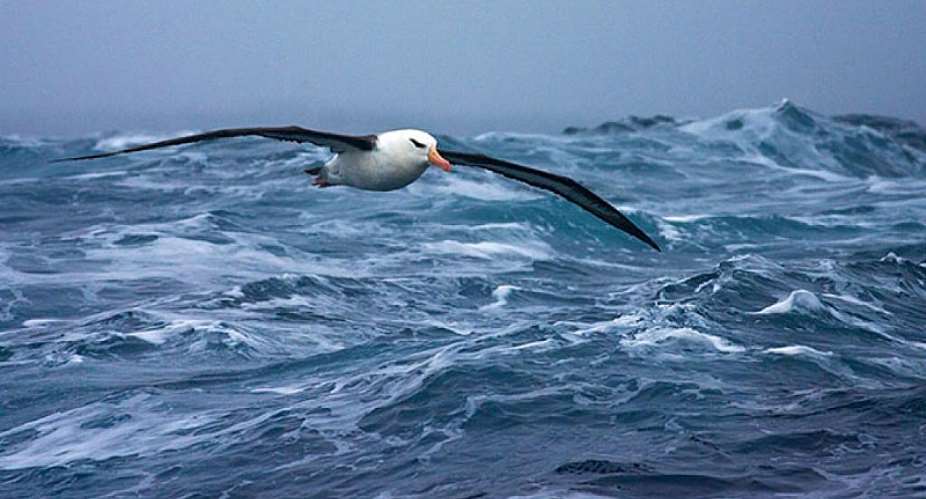A new UN climate report is warning of unprecedented damage to the oceans this century as the world's water becomes more acidic and hostile to life.
The Intergovernmental Panel on Climate Change (IPCC) says the impacts of global warming are already happening and the problems are no longer theoretical.
Extreme weather events will be more frequent as warmer oceans cause glaciers to melt and sea levels to rise by about 10cm more that the IPCC's own previous estimates.
“Extreme sea level events that [occur] once per century in the recent past are projected to occur at least once per year at many locations by 2050 in all scenarios,” the report warns.
So-called marine “heat waves” are sweeping across the ocean twice as often as they did three decades ago – with huge implications for marine life, fragile ecosystems, the food chain and the economy.
Compiled from the findings of thousands of scientific studies, the 900-page assessment of the oceans and cryosphere (the frozen parts of our planet), lays bare the damage global warming has already done to the Earth's water system, and forecasts future changes to weather patterns.
Paris mayor Anne Hidalgo, chair of C40, a network of cities committed to addressing climate change, said: “The IPCC report on Oceans and Ice published today makes for shocking reading. It is yet more evidence from the world's top scientists that we are in the midst of a climate emergency.”
- Scientists hope million-year-old Antarctic ice will reveal climate secrets
- Saving the planet means stopping land abuse, warns leaked IPCC report
The world's oceans absorb about a quarter of the CO₂ injected by humans into the atmosphere, and the report reminds us that everyone on Earth depends on the ocean either directly or indirectly – and on the ice caps and glaciers to regulate the climate and provide oxygen and water.
Last month, a ceremony took place in Iceland to commemorate the country's first glacier lost to climate change.
Melting permafrost and depleted fish populations are inevitable, as are more intense storms, threatening the livelihoods of as many as 2 billion people in coastal areas. This will all give rise to increased droughts, floods and hunger.
US-based NGO the Environmental Defense Fund (EDF) says fishing communities are already seeing the impacts of climate change as fish migrate toward the poles to cooler waters, where ecosystems are more habitable.
It's calling for urgent global action to create “climate-smart fisheries” in the face of evidence that warns of rapidly dwindling fish populations.
Although some of the serious impacts are inevitable, the report says countries can stave off some of the worst impacts – or at least make the challenges ahead more manageable – by making decisive moves to eliminate greenhouse gas emissions.
“The integrity of ocean ecosystems translates to impacts on global nutrition and food security … We cannot afford to leave the ocean and in particular, fisheries out of the climate change discussion,” says Douglas Rader, EDF's chief oceans scientist.





 Tuesday’s downpour destroys ceiling of Circuit Court '8' in Accra
Tuesday’s downpour destroys ceiling of Circuit Court '8' in Accra
 SOEs shouldn't compromise on ethical standards, accountability – Akufo-Addo
SOEs shouldn't compromise on ethical standards, accountability – Akufo-Addo
 Father of 2-year-old boy attacked by dog appeals for financial support
Father of 2-year-old boy attacked by dog appeals for financial support
 Jubilee House National Security Operative allegedly swindles businessman over sa...
Jubilee House National Security Operative allegedly swindles businessman over sa...
 Nobody can order dumsor timetable except Energy Minister – Osafo-Maafo
Nobody can order dumsor timetable except Energy Minister – Osafo-Maafo
 Mahama wishes National Chief Imam as he clock 105 years today
Mahama wishes National Chief Imam as he clock 105 years today
 J.B.Danquah Adu’s murder trial: Case adjourned to April 29
J.B.Danquah Adu’s murder trial: Case adjourned to April 29
 High Court issues arrest warrant for former MASLOC Boss
High Court issues arrest warrant for former MASLOC Boss
 Align academic curriculum with industry needs — Stanbic Bank Ghana CEO advocates
Align academic curriculum with industry needs — Stanbic Bank Ghana CEO advocates
 Election 2024: We'll declare the results and let Ghanaians know we've won - Manh...
Election 2024: We'll declare the results and let Ghanaians know we've won - Manh...
